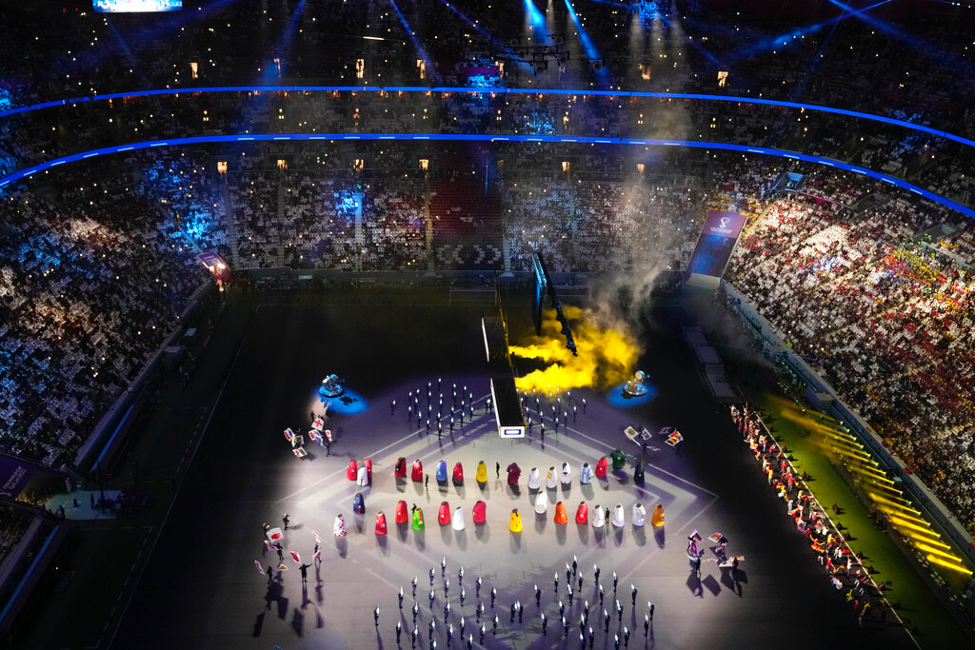
People around the world tend to regard the FIFA World Cup as a festive celebration. Yet, the building of the 2022 World Cup stadiums in Qatar has brought to light a plethora of human and workers’ rights violations in the Middle East.
From the initial decision to set Qatar as the host for the Men’s 2022 Soccer World Cup, FIFA has been heavily criticized, seeing as this decision moved the date of the tournament from the Summer to the Winter. Qatar was selected as host back in 2010, and the decision has since been determined to be the result of peddling favors, abuse of power, and even bribery occurring among FIFA officials.
After being chosen as the host, Qatar was tasked with building its stadiums for the tournament. Their insufficient infrastructure, paired with a workforce consisting almost entirely of migrant workers, brought these stadiums negative attention from soccer fans worldwide.
The facilities’ building conditions were deemed dangerous by the Human Rights Watch, but despite this, the project ensued. Investigations opened up regarding these abuses and brought the issue of exploitative labor in Qatar to the global stage. Migrant workers in Qatar are paid substandard wages, forced to put their lives in danger, and sometimes even denied the ability to leave the country, seeing as their passports are taken away from them.
Of the 37 migrant deaths that occurred during the building of the World Cup stadiums, 34 of those were deemed to be not work-related incidents. However, all in all, over 6,500 migrant workers have died in Qatar since they were awarded the status of the host country, including workers from places such as Pakistan, Nepal, Bangladesh, and other Asian Countries.
Although Qatar’s exploitative worker conditions have been highlighted due to the FIFA World Cup, neighboring countries such as Bahrain and Kuwait are also heavily dependent on their migrant workforces. Despite this higher level of dependency on migrant labor, these countries still fall short of international standards in worker protection. Most countries in the Middle East, in fact, exclude migrant workers from the protection of labor laws, instead subjecting them to immigration laws that tend to be much harsher. In some cases, for example, workers are only sponsored to stay in a country if they work there, subjecting them to Qatar’s exploitative working conditions, such as unpaid wages and excessive working hours, with no safeguard to protect them from these abuses.
The case of Qatar and the 2022 World Cup has brought attention to this emerging human rights crisis of worker rights in the Middle East in an unprecedented way. Now, more than ever, it’s time to start advocating for serious change in the labor laws in Middle Eastern nations that have been endangering the lives of immigrant workers for far too long.
After receiving much negative criticism for the way they treat migrant workers, Qatar has made some reforms in worker conditions. For example, they called for the raise of minimum wages despite nationality and started allowing workers to change their jobs as they see fit. However, unless safeguards are set down to protect migrant workers in all aspects of their work in Qatar and surrounding Gulf countries who follow the same practices, then worker’s rights violations like those seen with the building of the World Cup stadiums will continue.
Although Qatar is to blame for its substandard migrant conditions, FIFA’s selection of host countries also plays a large part. Looking back at previous Men’s Soccer World Cups, a pattern can be seen between workers being abused in the building of stadiums and FIFA neglecting to do anything about the issue.
For instance, the last World Cup, held in Russia, was plagued with worker abuses and human rights violations, and the Brazil World Cup before that also followed a similar format. Despite this pattern existing, FIFA officials neglect the issue and continue to not only allow these human rights violations to be carried out, but also are corrupt in nature when choosing the host country.
It is imperative that FIFA start to take accountability for their host country selection process because of the responsibility they hold as a multinational event. Not only should they focus on choosing countries that have the infrastructure to host these events, but they should also take a more active approach in selecting countries whose labor force is protected and large enough to live up to the task.



